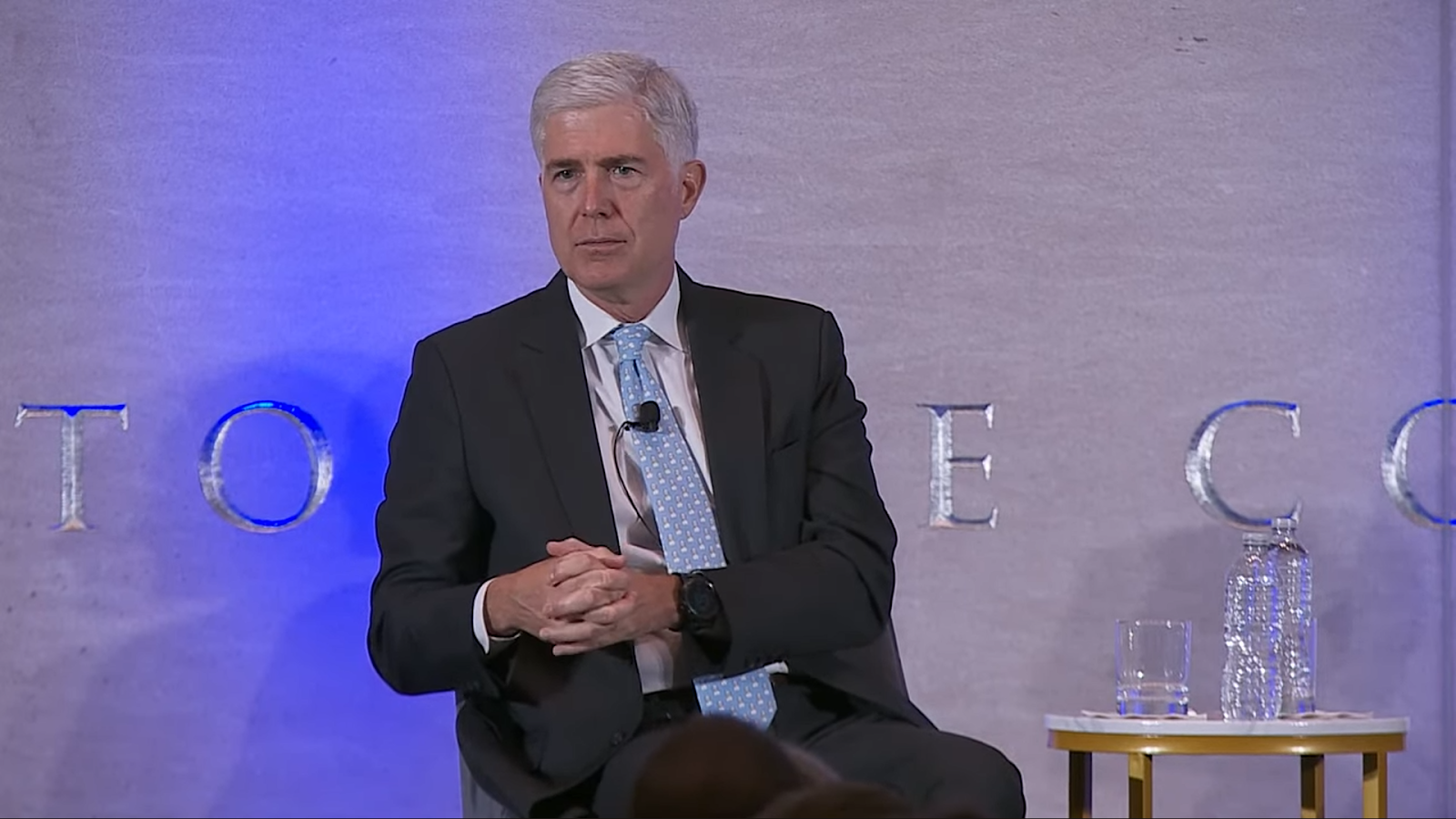Gorsuch slams government agencies acting as ‘prosecutor and judge’ in new book – Washington Examiner
In his new book *Over Ruled: The Human Toll of Too Much Law*, Supreme Court Justice Neil Gorsuch critiques the increasing power of federal agencies, which he claims often act as both rule-makers and enforcers while simultaneously serving as judges in their own cases. This dual role presents a significant conflict of interest and calls into question the impartiality of agency adjudications conducted by administrative law judges (ALJs)—who are typically employees of the agency itself. Gorsuch argues that this structure skews justice in favor of government agencies, noting statistics that show the Securities and Exchange Commission (SEC) achieves a 90% success rate in its in-house proceedings compared to only 69% in federal court.
Gorsuch emphasizes the alarming trend of cases being resolved without public jury trials and reinforces the idea that defendants, like hedge fund manager George Jarkesy—whose case recently affirmed the right to a jury trial against the SEC—should not be stripped of this fundamental legal right. He highlights a broader issue of agency overreach, citing that between 2010 and 2019, the Social Security Administration denied over 60% of disability claims without these cases being truly reviewed by independent courts.
In this context, Gorsuch calls for greater attention to the judicial process and the inherent need for safeguards to ensure that individuals receive fair trials, free from the influence of the very agencies that impose regulations on them.
Gorsuch slams government agencies acting as ‘prosecutor and judge’ in new book
Supreme Court Justice Neil Gorsuch issued a dire warning on the dangers arising from federal agencies acting as “prosecutor and judge,” pointing to data showing an alarming trend of cases effectively barred from public jury trials.
In an excerpt of his new book, Over Ruled: The Human Toll of Too Much Law, obtained by the Washington Examiner, Gorsuch criticized how federal agencies not only create and enforce binding rules but also often play the role of both prosecutor and judge. His book follows the most recent Supreme Court term that dealt several blows to administrate agency powers, including the overturning of the Chevron doctrine and a case that limited in-house adjudications at the Securities and Exchange Commission.
“Here’s the thing, though. These days, federal agencies don’t just write and enforce legally binding rules. Often, they act as prosecutor and judge, too,” Gorsuch said.
Gorsuch underscored the inherent conflict of interest in agency adjudications, conducted by agency-appointed administrative law judges, or ALJs, arguing the process may lack true independence.
“Often [an ALJ] is just another agency employee. Tomorrow, he could be transferred to another post — perhaps writing rules or enforcing them,” Gorsuch wrote.
This lack of impartiality, he argued, skews the justice system in favor of agencies, as evidenced by the SEC’s 90% success rate in its in-house proceedings compared to 69% in federal court.
The Supreme Court recently ruled in favor of hedge fund manager and conservative radio host George Jarkesy, whom the SEC fined and barred from the industry after determining he had committed securities fraud. In a 6-3 decision joined by Gorsuch, the high court ruled that defendants such as Jarkesy have a right to a jury trial.
Gorsuch also pointed to other examples of agency overreach in his book, noting that between 2010 and 2019, the Social Security Administration denied over 60% of disability applications, yet only about 1% of these claims were decided on the merits in federal court.
“Admittedly, if you are unhappy with an agency’s treatment of your case, and if you persist through all of its internal review processes, and if you have enough time and money, you can usually bring your complaint to federal court for review before an independent judge,” Gorsuch contended in one passage. “But what are the chances of being able to endure and afford all that?”
Approaching his seventh year on the bench since he was nominated by former President Donald Trump in 2017, Gorsuch, 56, charted his stance in his book as an advocate of people facing significant challenges to appeal decisions made by federal agencies.
The overarching message behind the book is the idea that citizens are facing an unprecedented level of laws and regulations today compared to people in the past.
“Some professors say that there are now so many federal laws on the books, crimes, that every American over the age of 18 commits one felony a day,” Gorsuch told Fox News Sunday with Shannon Bream. From “1970 to present, we’ve seen maybe a doubling in the number of federal crimes on the books … and that’s just the tip of the iceberg because federal agencies have been busy, too,” the justice added.
The high court jurist is set to embark on a tour later this week, making stops at the Nixon and Reagan presidential libraries to promote the release of his book on Aug. 6.
" Conservative News Daily does not always share or support the views and opinions expressed here; they are just those of the writer."




